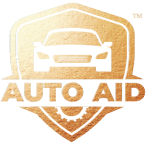The auto inspection process is not just a routine check-up for your vehicle; it’s a critical assessment that ensures your car is safe, reliable, and in optimal condition. Whether you’re buying a new vehicle or maintaining an existing one, understanding this process can save you from unexpected repairs and ensure a smooth driving experience.
This comprehensive guide delves into the essential components of the auto inspection process, its importance, and why it matters for every vehicle owner.
What is the Auto Inspection?
The auto inspection is a systematic and detailed evaluation of a vehicle’s condition, conducted by trained technicians. It involves examining various components, systems, and safety features to identify any potential issues and ensure that the vehicle is safe to operate.
The goal is to maintain the vehicle’s reliability, performance, and compliance with regulatory standards.
Auto inspections can be mandatory, as required by state or local regulations, or voluntary, as part of routine maintenance or when buying or selling a vehicle. Regardless of the reason, the inspection process is essential for identifying problems that may not be apparent during regular use.
Key Components of Auto Inspection
Auto inspections cover a wide range of vehicle systems and components to ensure comprehensive evaluation. Here are the key areas technicians focus on to maintain and enhance your vehicle’s performance and safety.
- Exterior and Interior Examination: The inspection begins with a detailed assessment of the vehicle’s exterior and interior. Technicians check for any signs of damage, rust, or wear on the exterior body panels, lights, and mirrors. Inside, they evaluate the condition of seats, carpets, dashboard controls, and ensure all essential features like windows and doors operate smoothly.
- Engine and Mechanical Systems Evaluation: The heart of the inspection focuses on the engine and mechanical components. This includes checking fluid levels (oil, coolant, transmission fluid), inspecting belts, hoses, and filters for signs of wear or leaks.
Technicians also perform diagnostic tests to assess the engine’s performance, detect any abnormal noises or vibrations, and ensure all systems are functioning within optimal parameters. - Electrical System Testing: A thorough examination of the electrical system is essential for identifying potential issues that could affect the vehicle’s performance and safety.
This includes testing the battery’s health, checking the functionality of lights (headlights, brake lights, indicators), and verifying the operation of electronic components such as air conditioning, navigation systems, and audio units. - Safety Features Assessment: Safety is paramount in any vehicle inspection. Technicians inspect critical safety features including brakes, tires (checking tread depth and inflation pressure), suspension components, steering systems, and overall vehicle alignment.
Importance of Auto Inspection
Regular auto inspections are crucial for several reasons:
- Preventative Maintenance: Identifying potential issues early can prevent costly repairs down the road.
- Safety Assurance: Ensures all safety features are functioning correctly, reducing the risk of accidents.
- Compliance: Helps ensure your vehicle meets regulatory standards and emissions requirements.
- Resale Value: A well-maintained vehicle with a documented inspection history can fetch a higher resale value.
Choosing a Reliable Inspection Service
Selecting a reputable auto inspection service is key to obtaining accurate and reliable results. Look for certified technicians with experience in conducting comprehensive vehicle assessments.
At AutoAid, our inspection process is meticulous and thorough, utilizing state-of-the-art diagnostic tools to provide detailed insights into your vehicle’s condition.
FAQs about the Auto Inspection Process
Q: How often should I have my car inspected?
A: It’s recommended to schedule an auto inspection annually or before embarking on long trips. Regular inspections help maintain vehicle performance and safety.
Q: What does AutoAid’s auto inspection process include?
A: Our auto inspection at AutoAid covers a comprehensive evaluation of all major vehicle systems, from engine diagnostics to safety inspections.We provide detailed reports and transparent recommendations to ensure our customers make informed decisions about their vehicle’s maintenance and repair needs.
Conclusion
Understanding the auto inspection process empowers you as a vehicle owner to prioritize maintenance and safety effectively. Whether you’re proactively maintaining your vehicle or assessing a potential purchase, investing in professional auto inspections ensures peace of mind and enhances your driving experience.
For reliable and comprehensive auto inspection services that prioritize your vehicle’s health and safety, trust AutoAid. Download the AutoAid App or Contact AutoAid today to schedule your next inspection and experience excellence in automotive care

